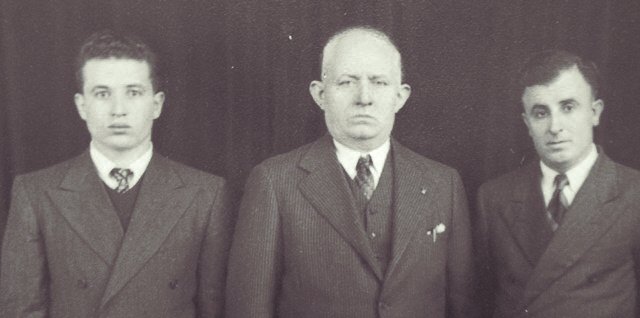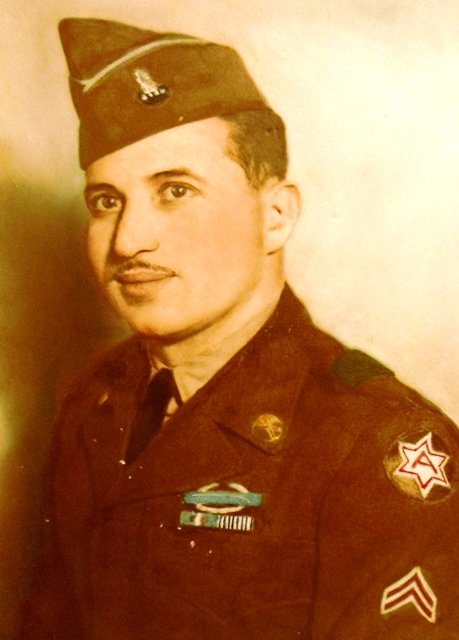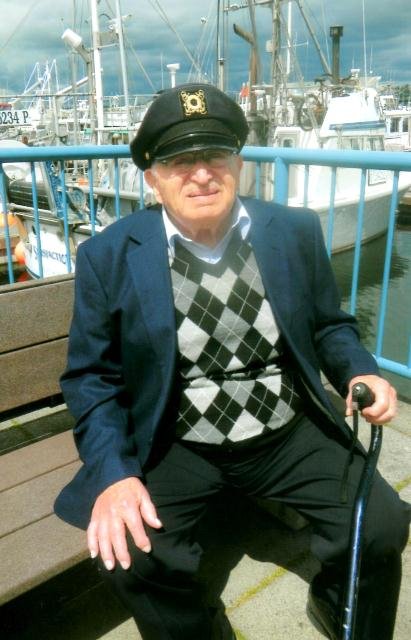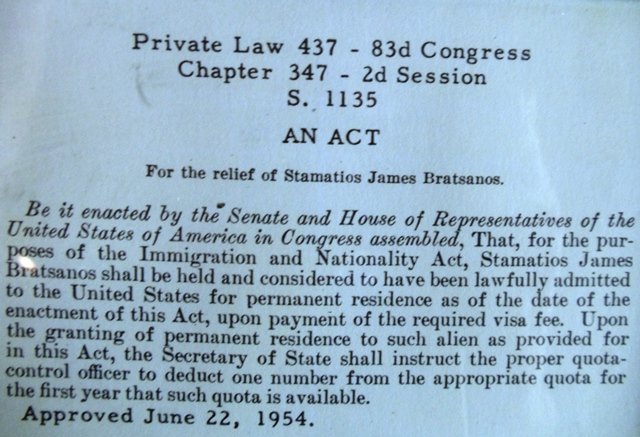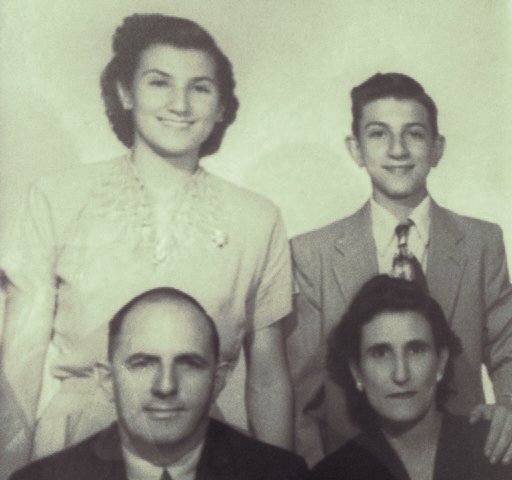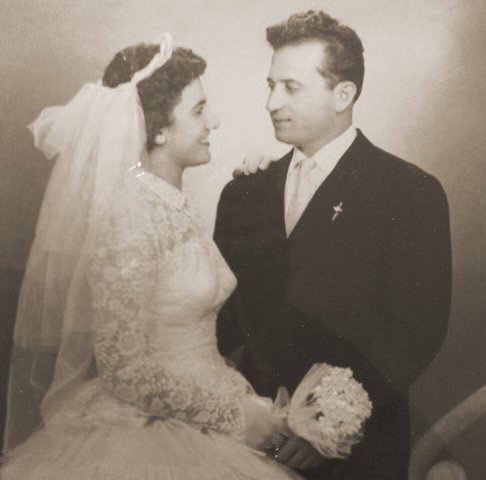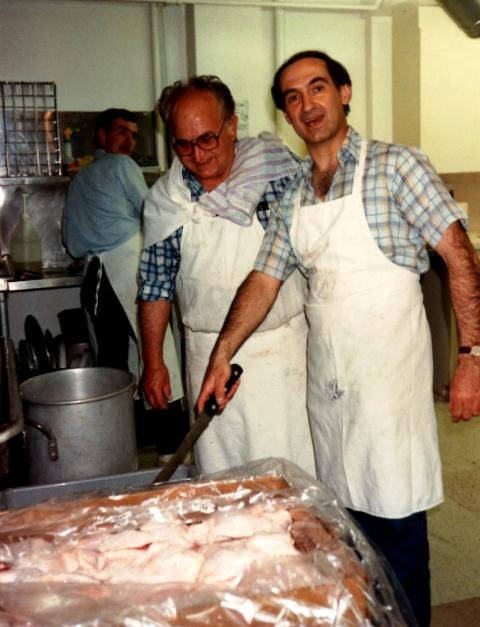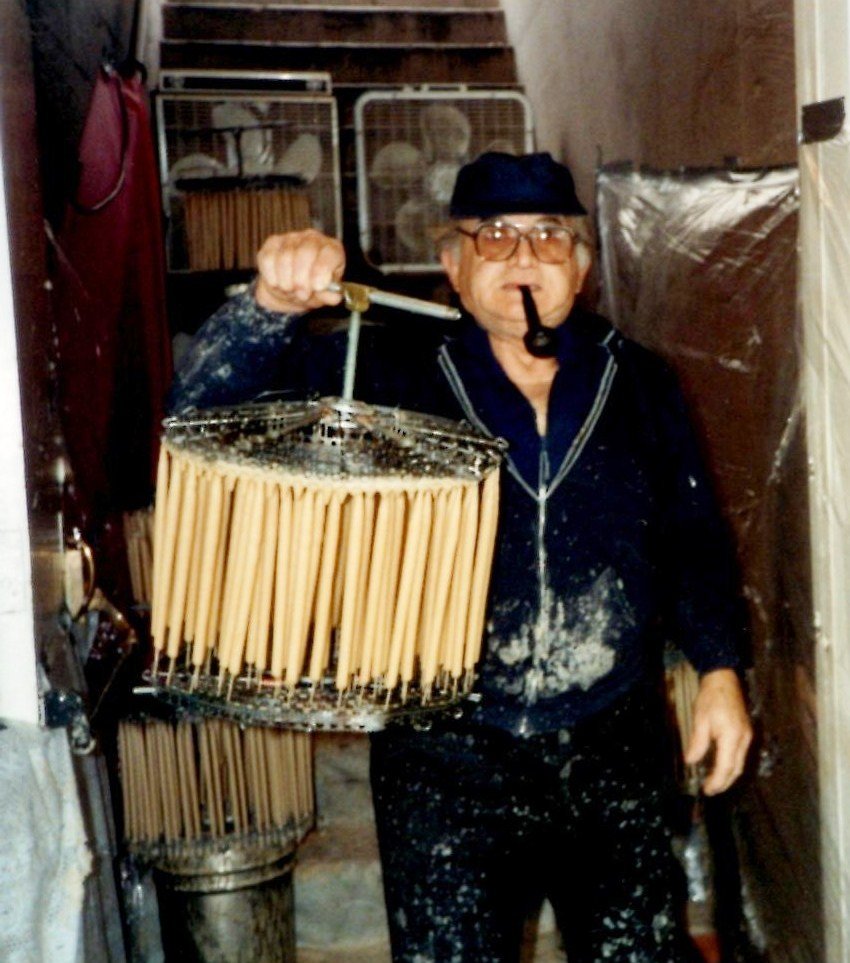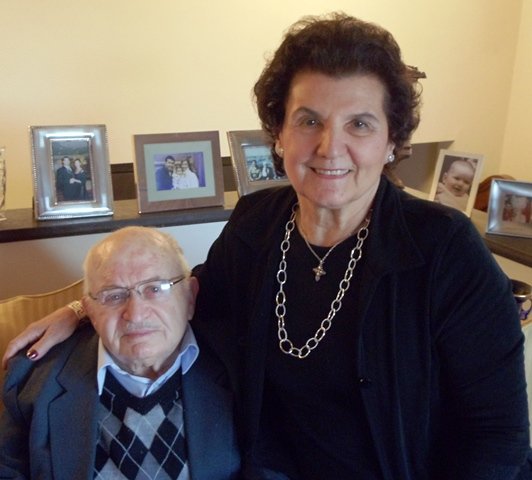Seattle Or Nothing
That’s what Stamatios (Steve) Demetrios (James) Bratsanos said to his prospective wife before they left Greece to spend their lives together in the United States.
SEATTLE OR NOTHING
Psara is a small Greek island east of Athens near the larger island of Hios in the Aegean Sea. The island was an important part of the Greek Revolutionary War of 1821 (being freed from the Ottoman Turks) and Steve’s great-great grandfather and uncle were Revolutionary War heroes. Steve’s father, Demetrios Ioannis Bratsanos, and grandfather Ioannis, were men of the sea. Some say that the name Bratsanos means “big biceps.” Steve’s mother was Maria Stamatiou (the feminine of Stamatios) Marinos. They had four children: Margarita, Ioannis (who died at the age of six), Eleftherios and Steve. Steve was born on July 12, 1926, was named after his maternal grandfather and remembers his first encounters with the sea on a small sail boat with his cousin, Haralambos.
Demetrios was frequently in the United States beginning in 1918 where he had a restaurant and card room in Norfolk, Virginia. Steve recalls first meeting his father at the age of six when Demetrios returned to Psara in 1932. Steve thought his father was a doctor as Demetrios was wearing a long black coat. He also remembers his father bringing a small phonograph player with him.
Steve began working on boats at the age of 12 traveling the Mediterranean Sea on boats owned by relatives. He went on his first trip from Marseilles, France, and later with his brother-in-law Aristidis who was the captain of a ship. Aristidis later went down with the ship in a tanker accident in the Bosporus on the boat Armonia. Steve’s brother was also on that ship. He was burned, but survived. Steve worked as a deck hand but also catered to passengers, bringing them food and supplies.
Steve left Psara and traveled to Norfolk, Virginia, before his 18th birthday to meet his father. Given his age he could have automatically received citizenship from his father. However, in Greece, where the nine months of pregnancy count in one’s age, he had to go through an arduous process to become a United States citizen.
Steve had been told he could become a United States citizen by serving in the military. He enlisted in the Army and served on the front lines in the Korean War for 22 months. When he was discharged, it was discovered he was not of legal age at enlistment and shouldn’t have served in the military. Thus Steve was facing deportation. Fortunately, Rose’s family (his future in-laws) in Seattle, Washington, knew Steve and contacted Warren Magnuson (United States Senator from Washington State), on his behalf. The story of Steve’s plight also appeared in local newspapers. Ultimately, through an Act of Congress he was “lawfully admitted to the United States for permanent residence on June 22, 1954” and thus obtained his U.S. citizenship.
Rose (Rosa) Amalia Athanasatos was also born on the island of Psara. Her father’s family was originally from the island of Cephalonia in the Ionian Sea. Her father Gerasimos had come to America and established a grocery store business in Charleston, South Carolina. Rose, her mother and brother joined him in 1951. On a trip back to Psara in 1957, the Athanasatos family encountered Steve’s parents who believed Rose to be a good girl for Steve to marry. They wrote to Steve who was in Japan at the time telling him he was engaged. He did remember Rose, although as a “chunky” little girl, and they corresponded for a year before marrying on October 12, 1958 in Piraeus, Greece. They returned to Psara for three months, visited Cephalonia for one month, and then took a cruise on the ship Queen Fredericka before coming to Seattle in 1959. Steve had fallen in love with Seattle while on his way to serve in Korea and told Rose, “It is Seattle or nothing.” He wanted her to know ahead of time that he was planning on living in Seattle.
Once in Seattle Steve was back to work as a Merchant Mariner and was away from home for up to three months at a time while Rose maintained their apartment in West Seattle. His work took him mostly to the Pacific Ocean, to Japan, Vietnam and the Gulf of Alaska. Their daughter Marianne (Maria-after her paternal grandmother and Ioanna-after Ioannis, the child that died) was born in 1960 and son James Steve in 1963. Their West Seattle friends were the Skandalis, Carkonen, Costacos, Pulakis, Andrias, Denos and Mandy families. In the video, Confusion of Dates, Rose tells the story about the European and American difference of writing dates with the month or day coming first, (01-10-2012 or 10-01-2012). This difference kept a Costacos cousin in Greece while the cousin’s family waited at the airport. Rose’s aunt and uncle, Margarita and Chris Cayafas and his brother Nick owned nine acres where the Bratsanos children remember a wonderful garden and wooded area. The Bratsanos family maintained a close relationship with Rose’s cousin Bill Good and his wife Tina. Bill drafted a book about Psara that goes back as many as seven generations.
On Columbus Day 1963 Steve was on a ship in the Gulf of Alaska when a huge storm hit. As he was attempting to secure some cargo, the ship rolled sharply and Steve was hit by the cargo. He was almost thrown overboard and was holding on by one hand. His right arm was broken in several places. He also sustained back and leg injuries and a severe head injury that required 47 stitches. Fortunately, there was a plastic surgeon on board who was traveling to Japan on a missionary trip. Although the doctor was able to provide emergency care, there was no emergency airlift available and the broken bones were not properly set. His family did not learn of the injury until Steve arrived in Japan 14 days later. He ultimately returned to Seattle, emaciated and with a loss of 70% of the grip in his right hand. He was unable to return to his work.
In 1969 the family went to Greece to spend time with their families and remained for four years. Marianne and James had attended Greek school in Seattle taught by Sevasti Hazimihalis and had an advantage when they transferred to school in Greece. A plan for the family to remain in Greece until the children began college was curtailed with the rule of the Greek military junta and popular uprising that followed in the early 1970s.
Back in Seattle the family reconnected with their Greek Orthodox Church of the Assumption where Steve dedicated his life to his church. He helped with meal preparation for up to 300 at Vasilopita (St. Basil’s Day) luncheons, cooked up to 1300 chicken dinners at the annual Greek festival, painted the inside and outside of the church several times, lowered and cleaned the church chandeliers, cleaned the yard, was the church maintenance man, installed a walk-in refrigerator, helped make thousands of candles, and served several terms on the parish council. During the annual Greek festival he even stayed overnight, sleeping on the couch in the women’s rest room. He told the parish council to forget paying a security guard as he would be there instead. Many times at the Easter dinner following the midnight service, the Bratsanos family would not get home until six am until after the last lamb pan was washed. With arthritis resulting from his injuries it would take up to a week for Steve to recover after these events. One time he was so exhausted when he left he had a car accident and had to crawl out the window of the car, despite the injuries to his arm and back. He hauled the groceries and cooked at the church until the age of 79 in 2005.
Steve used his seamanship on his own boat Pantocrator (Almighty or All powerful) not only for family outings but to entertain. He, Jerry Costacos and Tom Benis would use their boats to take church youth on outings. Steve and Rose would travel by boat to Washington’s Raft Island in Puget Sound and work at the church-operated All Saints Camp for children and spend up to ten days cooking and helping with maintenance of the camp facility.
For the Bratsanos family, like many other Greek families, their heritage has been maintained through association with other Greeks and through their Assumption Greek Orthodox Church. Along with Steve’s work Rose served as president of Philoptochos (women’s philanthropic auxiliary) for six years. Steve never missed a single service during the Lenten season. Although the children participated in some Greek fraternal organizations, celebrations following church weddings or baptisms provided the primary venues for Greek food, music and dance. The family continues to give their time and talents to the Church.
By John and Joann Nicon, January 2012
PHOTOS
Stamatios Demetrios Bratsanos, 2011
Island and village of Psara
Steve, Demetrios and brother-in-law Aristidis Bartzis, circa 1945
Steve in uniform, 1948
Steve, 2012
Steve’s Act of Congress, 1954
Athanasatos family, STANDING: Rose, George; SEATED: Gerasimos, Despina, circa 1950s
Rose and Steve wedding, October 12, 1958
Rose and Steve 50th wedding anniversary book mark, 2008
Steve Bratsanos family, Marianne, Rose, James and Steve, 1978
Festival cooking (l-r) Andy Chacharon, Steve, Christos Mansieris, 1992
Steve making candles, 1993
Assumption Parish Council, (l-r) Milton Diafos, Nick Vamcross, Spiro Nicon, Nick Nickolas, Fr. Photios Pentikis, George Kosta, Spiro Savvides, Roger Hutchinson, Andy Lucas, Gus Vulgares, Steve Bratsanos, circa 1980
Steve and Rose, 2011
Photos 1 and 14 by John Nicon; all others from Bratsanos family collection
SOURCES
Video interview by John and Joann Nicon, December 2011
VIDEO SEGMENTS
Steve’s Early Life
Confusion of Dates
Rose’s Seamanship



